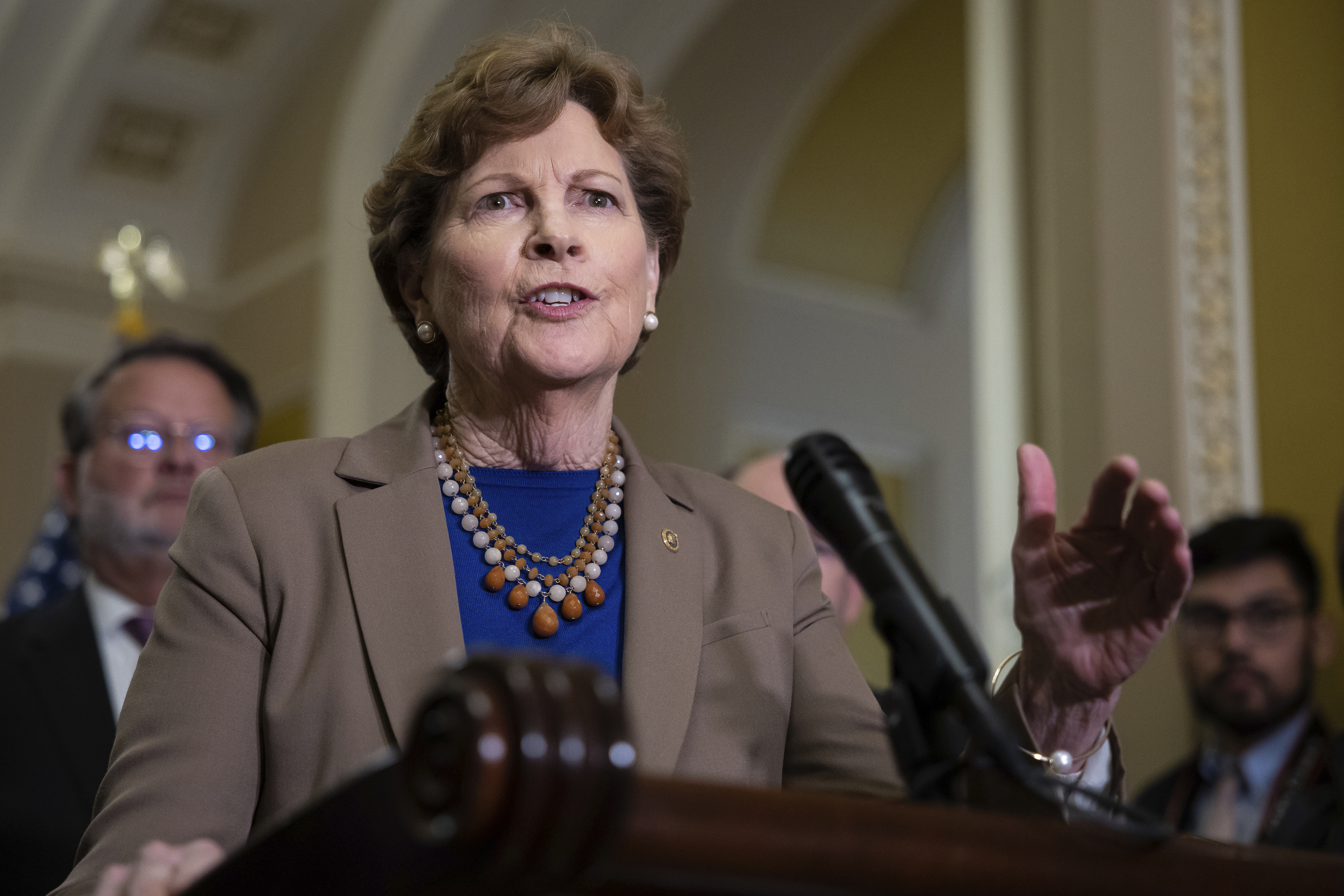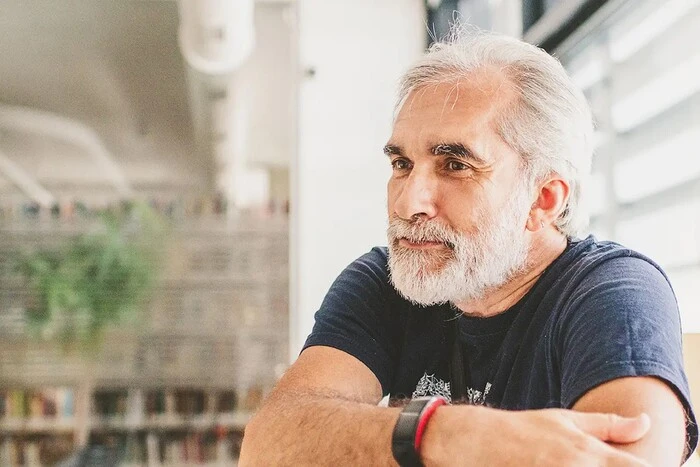Trump lost the ability to spread his tweets due to access to social networks.


The 2026 map for Senate Democrats became even more challenging.
After losing the majority last November, the party faced a very narrow path from that flame. Then Senator Shaheen raised an objection. It turned out that the Democrat from New Hampshire announced her resignation on Wednesday, forcing Democrats to defend a third Senate seat in 2026, alongside the precarious situations of Jerry Peters and Tina Smith in Michigan and Minnesota.
'It's no secret that we face a tough map,' said Senator Richard Blumenthal (D-Connecticut), although he remains an optimist: 'I don't think you can understand that losing one senator in a state where I think we're going to do very, very well.'
More departures are likely for Democrats, although Illinois is a bluer state, and Colorado Senator Michael Bennet is considering running for governor.
Durbin, who is 80, declined to share his own plans for a reelection campaign on Wednesday but acknowledged that 2026 is a 'challenge' for the party.
The biggest challenge for Democrats has always been the limited opportunities for leverage while they try to return to power: the tickets of Susan Collins and Thom Tillis in Maine and North Carolina, respectively, are their best options. And, most importantly, if they win both, they will still fail to gain control of the Senate independently - and neither of them is an easy victory for Democrats.
All of this is a real test for the party's fight, even considering that the next elections will be in a year and a half. Although they have less bias than last year when they lost four seats, 2026, in many respects, is becoming the first step toward their actual chance to flip the Senate in 2028.
Even with changing variables, it is established that Republicans along with retirees of their majority likely will win the midterms, even if the party is genuinely risking losing its narrow control of the House.
There are possible competitive elections for both parties in these three states. Democrats are considered weak favorites for all three seats; former Vice President Kamala Harris won both New Hampshire and Minnesota, while the GOP hasn't won Senate elections there for decades.
Despite this, all three resignations so early in the cycle compel Republicans to celebrate.
It's hard to beat a senator's 'bird-brained' mentality, said Senator John Boozman (R-Arkansas). 'Statistically, it is very, very difficult. Therefore, it is crucially important for Republicans to have that opportunity.'
Republicans have also gained support because few Maine Democrats are satisfied with the idea of challenging Collins, a rare moderate among Republicans, especially since there will be open gubernatorial races in their state. And Senate races in North Carolina have long led Democrats to ponder their options, even if some Trump allies have flirted with recruits for Tillis' gubernatorial party. The third potential problem for Republicans - Louisiana - is a risky target in November, because even if Senator Bill Cassidy loses, the party is confident that whoever replaces him will be a Republican.
Democrats still believe they might get a 'tailwind' that could increase their chances of securing more seats next year: particularly, from Donald Trump and Elon Musk, efforts that significantly reduce the size of the federal government in the Gun City and even sparked public complaints from Republican staffers.
Speculation about state senate opportunities could demonstrate the decline of viewers at publicized Democratic potential pearls that could be used for the benefit of foreign potential politicians supposedly like a bundle 'Defending opportunities for Democrats that they can take advantage of', plus, 'Republicans have more seats to defend, and they're doing it in a hostile political environment.'
All three Democratic states with active House representatives elected in 2018 will be submitting them inside the chamber in the Democratic Senate faction, which primarily consists of long-serving members.
The party is already in an active recruitment campaign while they strengthen their roster for the midterm elections.
Representative Haley Stevens (D-Michigan) is eyeing a post. Angie Craig, a Democratic representative, is seriously considering a run in Minnesota.
In New Hampshire, Democrats may face an employment issue that they hope to shed. Representative Chris Pappas, who has won four terms in a purple district, is considering running for the Shaheen seat, as is freshman Representative Maggie Hassan. If Pappas does not run, former Representative Annie Kuster, who retired from the House earlier this year, told POLITICO that she would 'think about running.'
Republicans are also preparing for the fight. Former Republican Senator Scott Brown (who represented neighboring Massachusetts) is taking steps to run again in New Hampshire in an attempt to make a political comeback after losing to Shaheen in 2014. Former Kansas Governor Kris Kobach, who has listened to Republican attempts to leave the gubernatorial party for the 2022 elections, is now clearly reconsidering his decision for 2026.
Veteran Democratic strategist in New Hampshire Jim Demers said: 'We will need every dollar earned to retain the seat - and a costly primary would not help.'
This information report contributed by Kelly Garrity.
Read also
- Front line status as of June 7, 2025. General Staff report
- Zelensky spoke about the destroyed Russian 'Iskanders'
- They will not get a respite: Russia has issued an ultimatum to Ukraine
- A prominent historian explained what Ukraine's victory in the war with Russia will be
- The SBU showed a new video of the strike on the Russian bomber Tu-22M3
- Bloomberg reveals Trump's new plan: Ukraine is pushed to the sidelines










